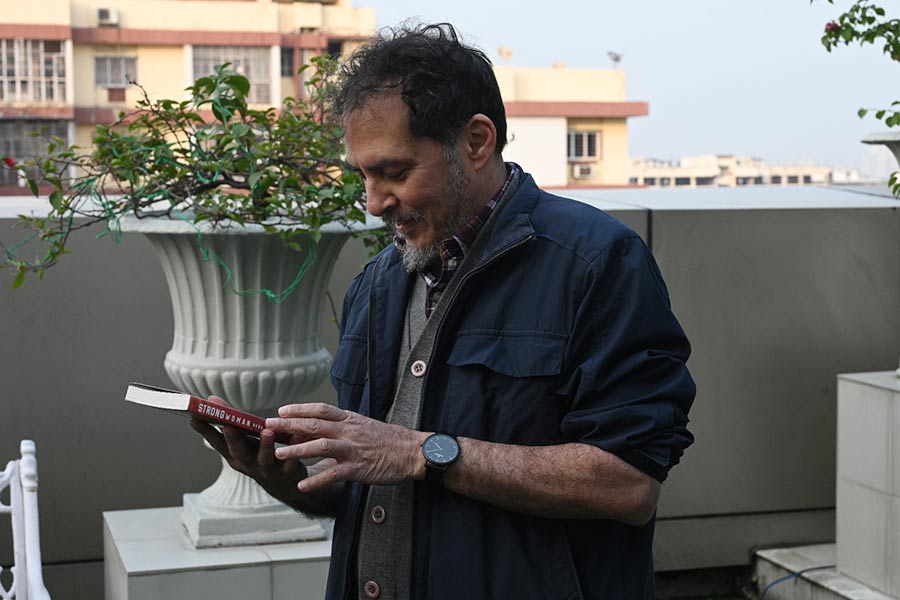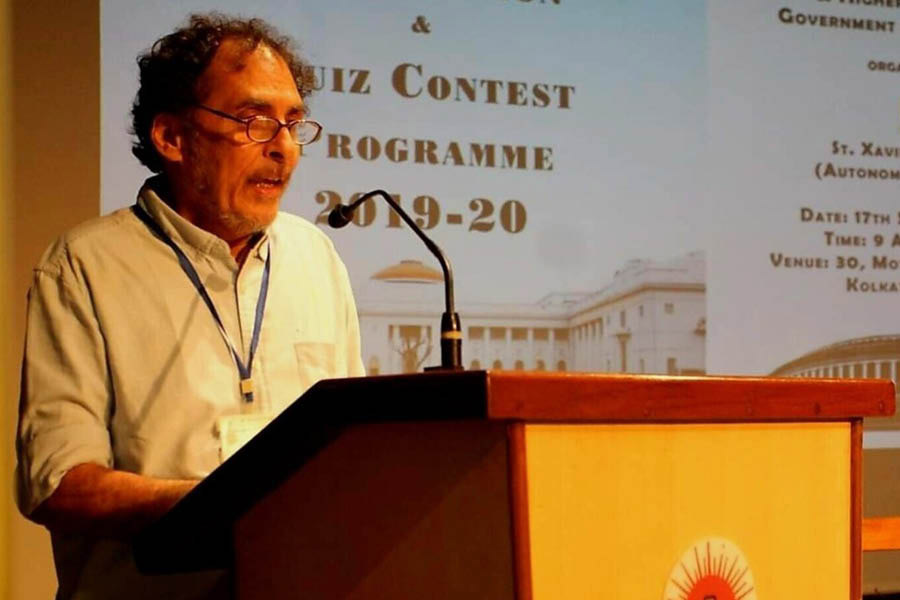For the past 40 years, Bertram Da’Silva, professor of English at St. Xavier’s College, Kolkata, has been quietly and unassumingly changing lives. He has been many things in these decades, among them — dean of arts when the college became autonomous in 2006, and then vice-principal for the past 14 years. Yet, for students in his classroom, he has always been someone who fundamentally shaped how they read and understood literature and art. For us, he is THE teacher, the one who made all the difference.
It was a muggy monsoon day in 1998 when Professor Da’Silva walked in to take his first class with my batch. There isn’t a lot of space between the door and the dais in room 11 at St. Xavier’s College, but he managed to cross it with quite a bit of swagger. He sat down and stared at us — cool, sharp eyes from under a shock of curly hair. He looked irritated by our presence and proceeded to tell someone that he didn’t like his face. He then talked about poetry. I didn’t understand much in that first class and he didn’t condescend to dumb things down. He had enough respect for his students to never do that. The message was simple — keep up or give up.

BD has the unique ability to make any text interesting, even if he doesn’t much like it himself
For people expecting a John Keating like figure, BD, or Bertie, as we knew him, was at the opposite end of that spectrum. He didn’t ask you to tear your books but threw you out of class if you didn’t have your text. If you stood on a bench in his class, he would probably ask you to jump out of the window. There was nothing whimsical, vague or precious about him. He didn’t encourage students to be pally with him and, truth be told, we were (for the most part) scared witless of his scalpel-sharp put-downs. He was in the business of teaching, and because it was important to him, he made sure that it was important to us.
A classicist in construction, a Romantic in delivery
BD has the unique ability to make any text interesting, even if he doesn’t much like it himself. That’s because it was his job to give us an even-handed view of it, bring out its beauty in ways we could never have thought of. We would go to him gushing about a play or a poem that he had finished teaching and he would say, “Yeah, I don’t think it’s well-written at all.” We would leave a little deflated, but there was an important lesson in there for us. He was doing his job whether he liked something or not.
With texts he did like, those classes changed the very wiring of our brains. And that’s what has made him so special for generations of his students. He taught us to think, to develop a sight of our own. But that’s not all.

His classes sometimes felt like listening to a beautifully crafted song. Yet it was the way in which they were structured that made them brilliant
I’ve never met anyone (in person or in recorded online lectures) who could make you see a text in the way he did. According to him, it’s because he’s a musician and he can hear the invisible patterns that come together to create harmony in a song. And literature is no different. That’s probably why his classes sometimes felt like listening to a beautifully crafted song. Yet it was the way in which they were structured that made them brilliant. Each class was constructed meticulously, with all the patient skill of a master clockmaker, each little part playing its role in the larger structure.
BD is a classicist in the construction of his classes — orderly, symmetrical, rational and logical. But he is a Romantic in his delivery, each class a well-rehearsed performance, which was at times clinically efficient, at times argumentative, and at the right time deeply passionate and profound. He led us on with absolute deductive clarity, making sure that we registered each stage until he would reveal the ending and everything would fall marvellously into place. It was that final moment we all looked forward to and loved. It was a lightbulb moment, an ‘aha’ moment, a wonderful, magical moment when the world for a while made sense.
He was both Houdini and Holmes, a man who took us on wild rides with an impresario’s panache

According to the author, tales about BD are legion and could fill up a good-sized book by now Amit Datta
When BD taught literature, it mattered. It was as important as any other pursuit in the world. Once at the end of a particularly intense class on WB Yeats, as his lecture reached a crescendo of revelatory brilliance, he had said in a voice throbbing with muted excitement: “That’s harmony! That’s truth!” For us, his classes were just that. He was both Houdini and Holmes, a man who took us on wild rides with an impresario’s panache.
In the four decades that he has taught at St. Xavier’s College, students have loved him (sometimes in hilariously unhinged ways) for all kinds of reasons. Tales about BD are legion and could fill up a good-sized book by now. But there’s not much point in telling him about them. He doesn’t like fuss, and his usual response to overt expressions of adoration is to gently steer them (or himself) away where he can’t hear them. But there’s a legacy that resides in his students all around the world for whom his classes shaped their minds and their lives. In his single-minded dedication to his profession and the craft, grace, integrity and honesty he brings to it, he belongs to a generation of teachers that is all but gone. For the rest of us who teach, whose fondest memories of learning are in his classroom, we know that there can never be another BD.
Arjun Sengupta is an assistant professor in the department of English at St. Xavier's College, Kolkata. He has been a teacher for the past 20 years and has written books on Soumitra Chatterjee and Shyam Benegal


